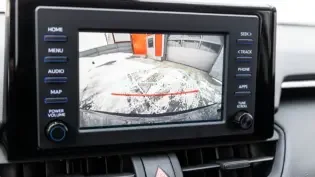Home > Run and Grow > Risk Management >
Don’t Depend On Homeowner’s Insurance for Your Home-Based Business
By: Susan Solovic

Here’s a scenario for anyone running a home-based business: The UPS guy makes a business delivery to your house, but slips, falls and sues. Are you covered by your homeowner’s or renter’s insurance?
You’re probably not, and that’s just one example of why owners of home-based businesses need to seriously consider their insurance needs.
Related Article: 10 Tips for Buying Insurance
Business equipment and inventory losses beyond $2,500 will not be covered by the typical homeowner’s policy should you suffer a loss. In the same way, if you see clients at home and they suffer an injury like our UPS guy did in the opening paragraph of this article, you’ll need some kind of business coverage to protect you.
Three levels of policy coverage
Coverage options vary somewhat by state, but generally speaking you have three “upgrades” to select from, depending on your business and your exposure to risks.
At the “bare bones” level, you may be eligible to get a rider on your homeowner’s policy to cover equipment and inventory beyond $2,500 or whatever amount is included in your standard homeowner’s policy. The Insurance Information Institute says that in some cases you can bump that $2,500 up to $5,000 for as little as $25 per year. Overall, coverage can be increased to $10,000.
In the same way, you can add a liability endorsement to your homeowner’s policy that would cover our UPS guy and a few other business visitors. However, adding the endorsement is limited to home-based businesses that receive very few visitors at home, like freelance writers. You need to check in your state to see how far you can push this before you need to go to the next step in this insurance progression.
When adding riders and endorsements to your homeowner’s policy won’t cover the amount of equipment or inventory you keep in your home, or you need better liability coverage, there are in-home business policies available. Additional areas covered by these kinds of policies would include, off-site property, loss of important documents, accounts receivable, and perhaps some loss of income if you suffer a disaster or fire that shuts you down.
Further, these policies may cover a few employees that you might have working at your home. They also give you broader liability coverage.
Standard business owner’s policy
The top level of coverage is a standard business owner policy. This is really the same coverage a brick-and-mortar business would carry and delivers broader coverage than a policy written specifically for a home-based business.
Along with everything you need to consider in order to purchase sufficient coverage for your home-based business, you also need to check your automobile insurance to see if you’re covered while you’re out driving for your business. Further, if you have employees, none of the policies mentioned here cover workers compensation, health or disability insurance.
This article was originally published by Susan Solovic
Published: March 16, 2015
2548 Views
2548 Views












